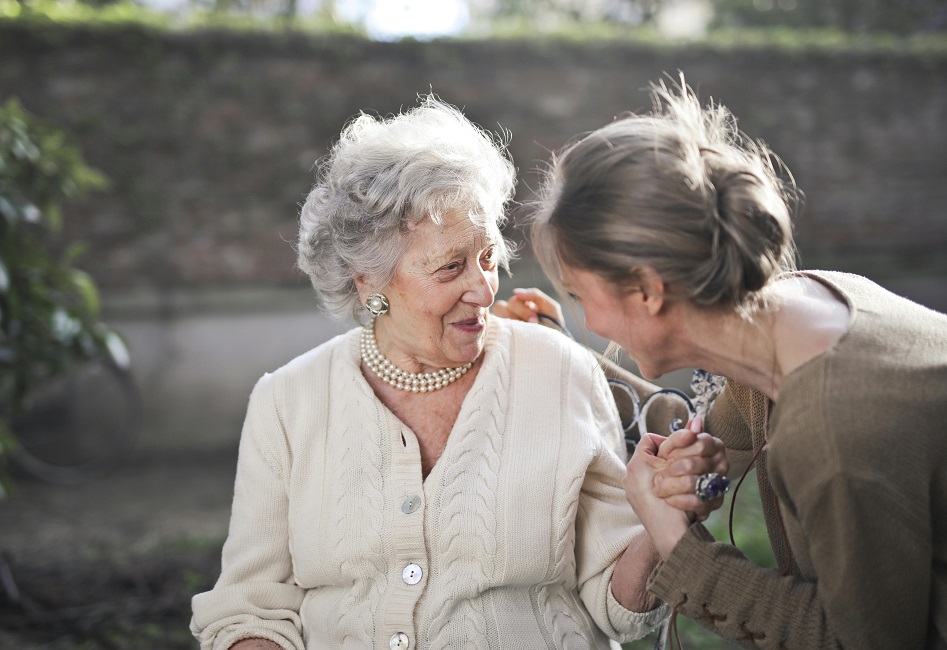Photo from Pexels
Caring for an elderly loved one at home can be a fulfilling and challenging responsibility. As your parents and grandparents age, it’s not uncommon for families to choose to provide care within the comforts of their own homes. However, this decision often comes with both emotional and practical considerations.
To help ensure that your elderly loved one receives the best care possible while maintaining their quality of life, it’s crucial to be well-prepared and informed. In this article, you will explore essential tips for caring for your elderly family member at home, covering various aspects of their physical, emotional, and social well-being.
Create a Safe and Comfortable Environment
The first step in caring for your elderly loved one at home is to create a safe and comfortable living environment. As they age, seniors may become more prone to falls and injuries. To minimize these risks, you should consider making necessary home modifications.
Start by removing tripping hazards such as loose rugs or cluttered walkways. Install handrails in hallways and bathrooms, and ensure that the lighting is sufficient throughout the house. These adjustments will help your loved one move around with greater ease and confidence.
Ensure that the home is at a comfortable temperature year-round. Seniors can be more sensitive to extreme temperatures, so maintaining a consistent and pleasant living environment is essential.
Manage Medications and Health Care
Many elderly individuals have multiple medications to manage their health conditions. Keeping track of these medications and their schedules can be a complex task. To ensure your loved one’s well-being, create a system for managing their medications. This may involve setting up a medication organizer, arranging for medication reminders, or seeking assistance from a home health care provider.
Maintaining open communication with your loved one’s healthcare team is crucial. Regular check-ups and consultations with their doctors can help you stay updated on their health status and address any concerns promptly.
Encourage Physical and Mental Activity
Physical and mental activity play a significant role in maintaining your loved one’s health and happiness. Encourage them to engage in regular exercise that suits their abilities and interests. Staying active can help maintain muscle strength, balance, and overall well-being.
It’s also important to address specific mobility challenges that may arise, such as gait freezing, which can be associated with certain medical conditions like Parkinson’s disease. Understanding these conditions and their impact on mobility is crucial for tailoring exercise routines and activities to address specific needs.
Mental stimulation is equally important. Provide opportunities for your loved one to engage in activities that challenge their cognitive abilities, such as puzzles, reading, or engaging in hobbies they enjoy. These activities can help slow cognitive decline and enhance their mental health.
Foster Social Connections
Social isolation is a common concern among the elderly, which can lead to depression and a decline in overall well-being. To combat this, make an effort to foster social connections for your loved one. Encourage them to stay in touch with friends and family, whether through phone calls, video chats, or in-person visits.
You can also explore local senior centers or social groups to provide opportunities for social interaction. Additionally, consider involving your loved one in family activities and gatherings. This not only strengthens the bond between family members but also keeps them engaged and connected to their loved ones.
Seek Respite and Support
Caring for an elderly loved one can be emotionally and physically draining. It’s essential to acknowledge the need for respite and support. Don’t hesitate to ask for help from family members, friends, or professional caregivers. You should have a support network that can step in when you need a break or have other commitments.
Respite care can offer temporary relief and ensure that your loved one’s needs are met when you’re not available. It’s not a sign of weakness to seek assistance, but rather a responsible approach to providing the best care for your elderly family member.
Plan for the Future
Lastly, it’s crucial to have a long-term plan for your loved one’s care. As their needs change with time, you should be prepared for potential transitions in care, such as transitioning to assisted living or nursing home care. Consider discussing financial planning and legal matters, including power of attorney and advance directives, with your loved one. Having a well-thought-out plan in place can alleviate stress and uncertainty when difficult decisions need to be made.
Conclusion
Caring for an elderly loved one at home is a noble and challenging endeavor. By following these essential tips, you can create a safe and comfortable environment, manage medications and healthcare, encourage physical and mental activity, foster social connections, seek respite and support, and plan for the future.
Just remember that providing care for an elderly family member is a shared responsibility, and it’s essential to care for yourself as well.

